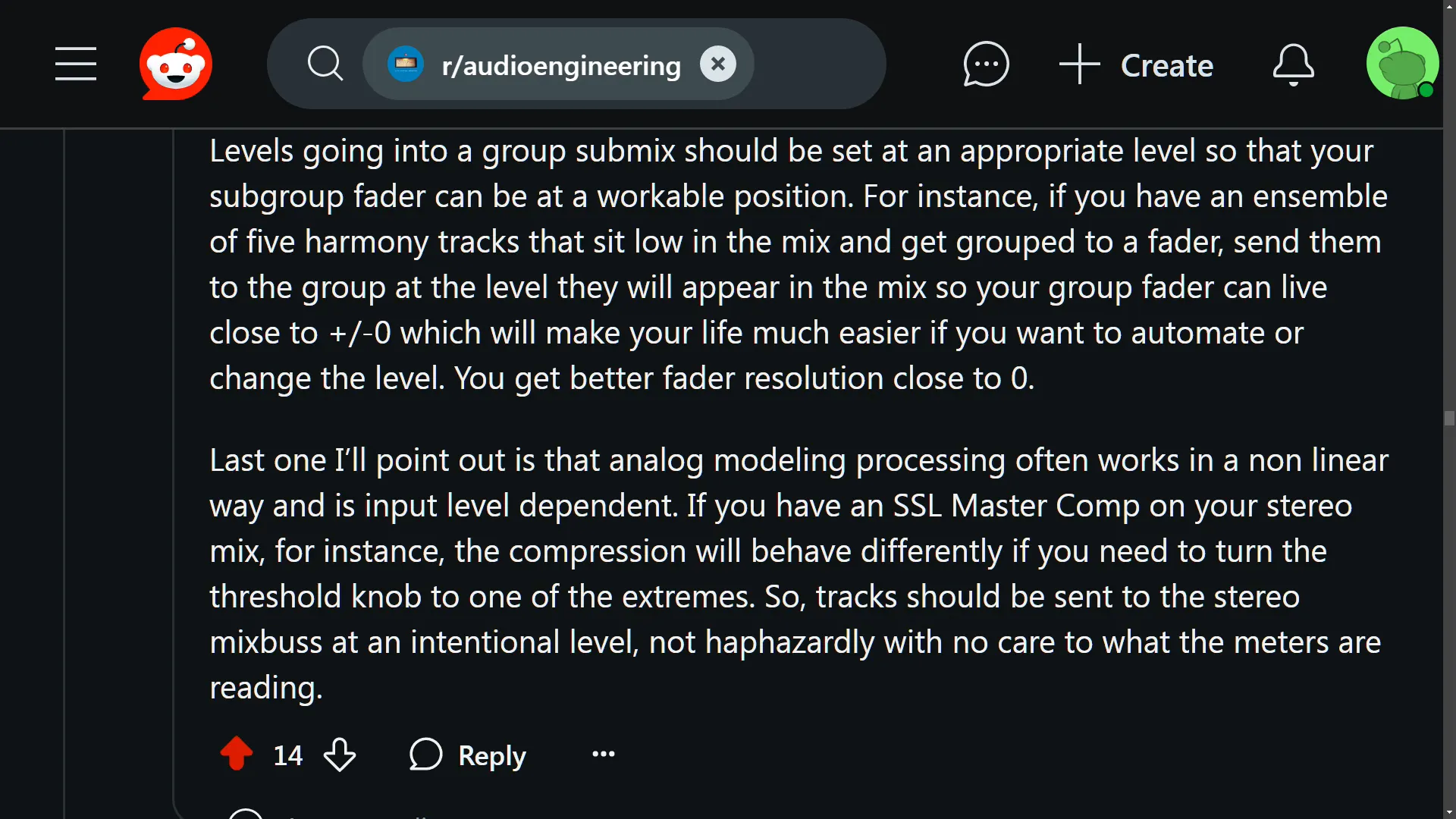In this blog post we explore tips, for engineering inspired by an engaging online conversation where various topics were discussed ranging from the difficulties encountered by audio engineers, on YouTube to helpful recording suggestions that can enhance your mixing skills.
Table of Contents
- Introduction to YouTube Audio Engineers
- The Importance of Well Produced Recordings
- Encouragement to Just Try It
- Critique of YouTubers Selling Courses
- Defending YouTube Engineers
- Making Good Recording Decisions
- Exploring Guitar Tone
- Making a Living as an Engineer
- Understanding Drums Panning
- The Need for Educational Patience
- Why Cheap Equipment Isn't Always Bad
- The Subjectivity vs. Objectivity Debate
- Understanding Stems vs. Mult-Tracks
- Confronting Equalization Fears
- Pitch Tuning and Widening Techniques
- Mix Quality vs. Master Quality
- The Importance of Gain Staging
- Frequently Asked Questions
Introduction to YouTube Audio Engineers
Audio professionals who work with YouTube content have an impact, in the music production industry by sharing their expertise and knowledge through, to access videos online. However the quality of information varies among these individuals as the platform houses a combination of experts and amateurs resulting in a blend of tips and potentially deceptive guidance.
Some people might doubt the reliability of a YouTube sound technician when they see how much effort goes into producing music videos each week. Raising questions, about the authenticity of the content being shared online. However there are individuals who skillfully juggle their professional duties with creating engaging content, for their audience.
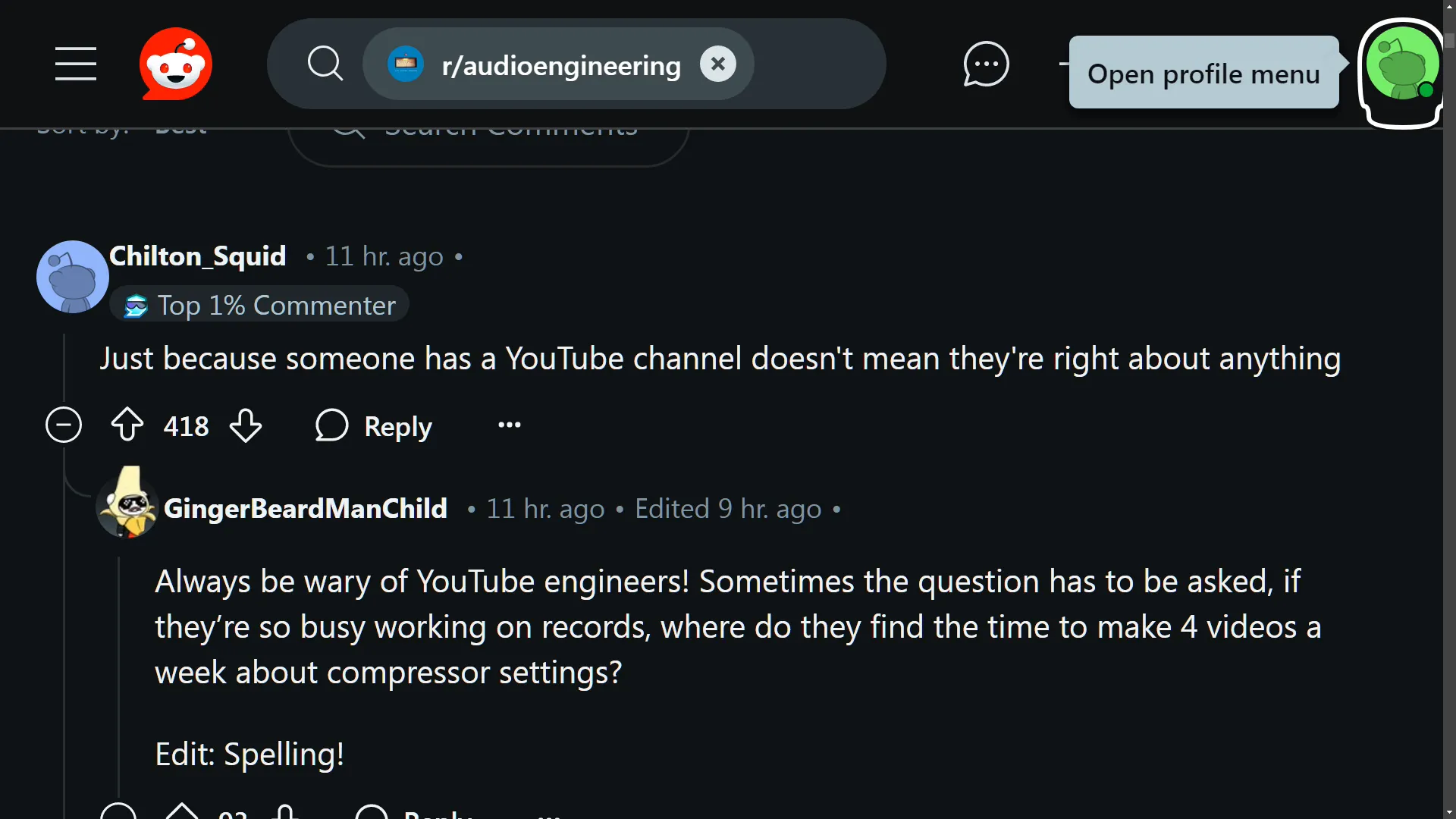
The Importance of Well Produced Recordings
Quality recordings serve as the cornerstone for an audio projects success.A polished and carefully crafted track sets the stage for an more impactful mixing process.Top notch recordings empower engineers to concentrate their efforts, towards enriching and polishing the audio of addressing problems.
A lot of, up and coming producers tend to undervalue the importance of a recording process. They sometimes hurry through recording sessions with the belief that they can always address any issues at a time.. This approach often leads to disappointment and less than ideal outcomes. It's more beneficial, in the scheme of things to invest time and effort into capturing each element from the start.
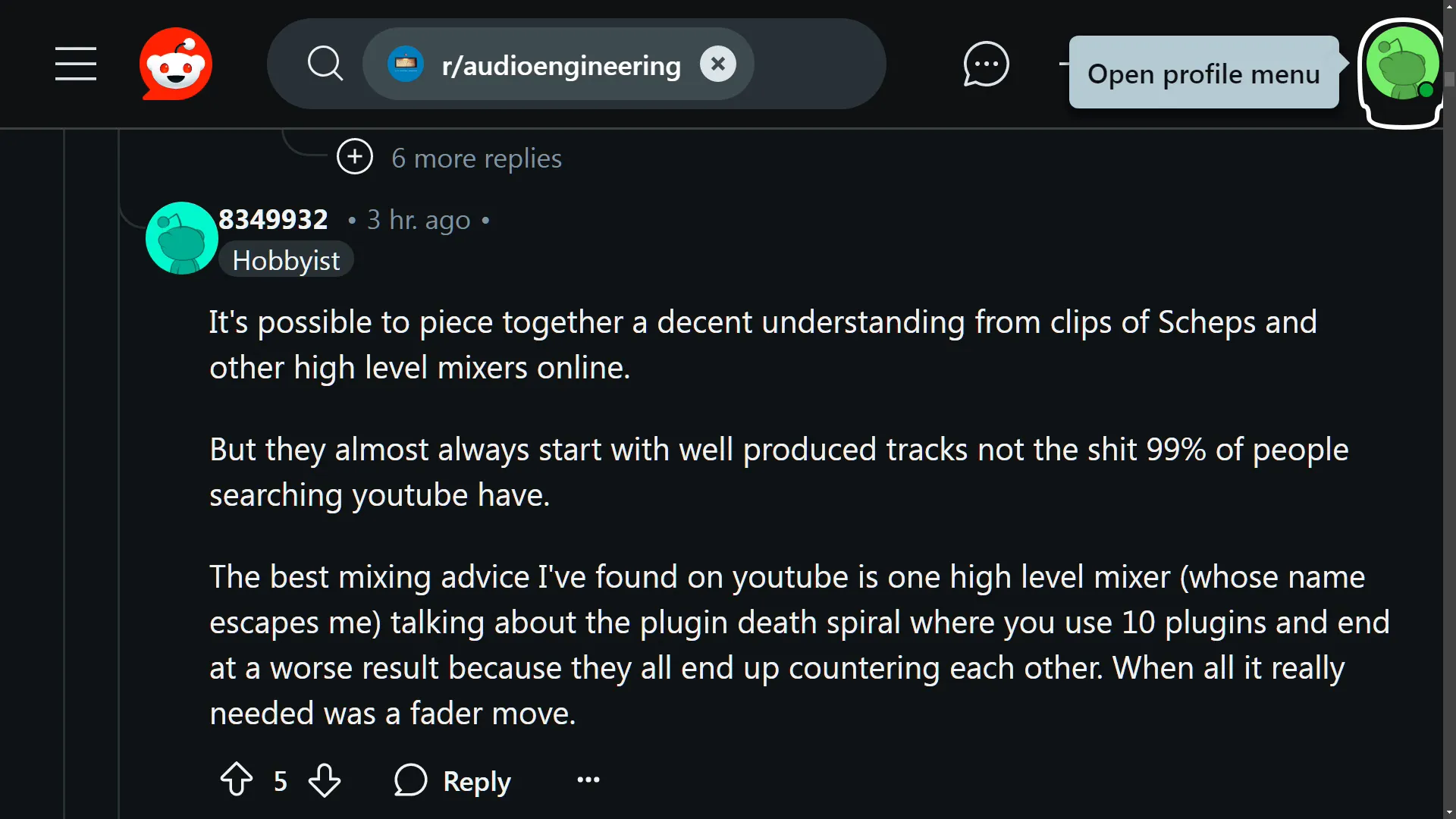
Encouragement to Just Try It
If you're feeling unsure, about getting into engineering work and don't know where to start. Just give it a shot! A lot of folks get overwhelmed by all the stuff involved in mixing and mastering music tracks. Remember; the best way to learn is by doing it yourself! The more you experiment and practice, with tools and techniques regularly the easier it'll become to handle them.
Begin by utilizing the tools at your disposal. Whether it's software or simple recording equipment to start with. The aim is to gain experience without hesitation. Embrace errors as they are integral, to the learning journey. Every stumble provides insights that aid in your development as a technician.
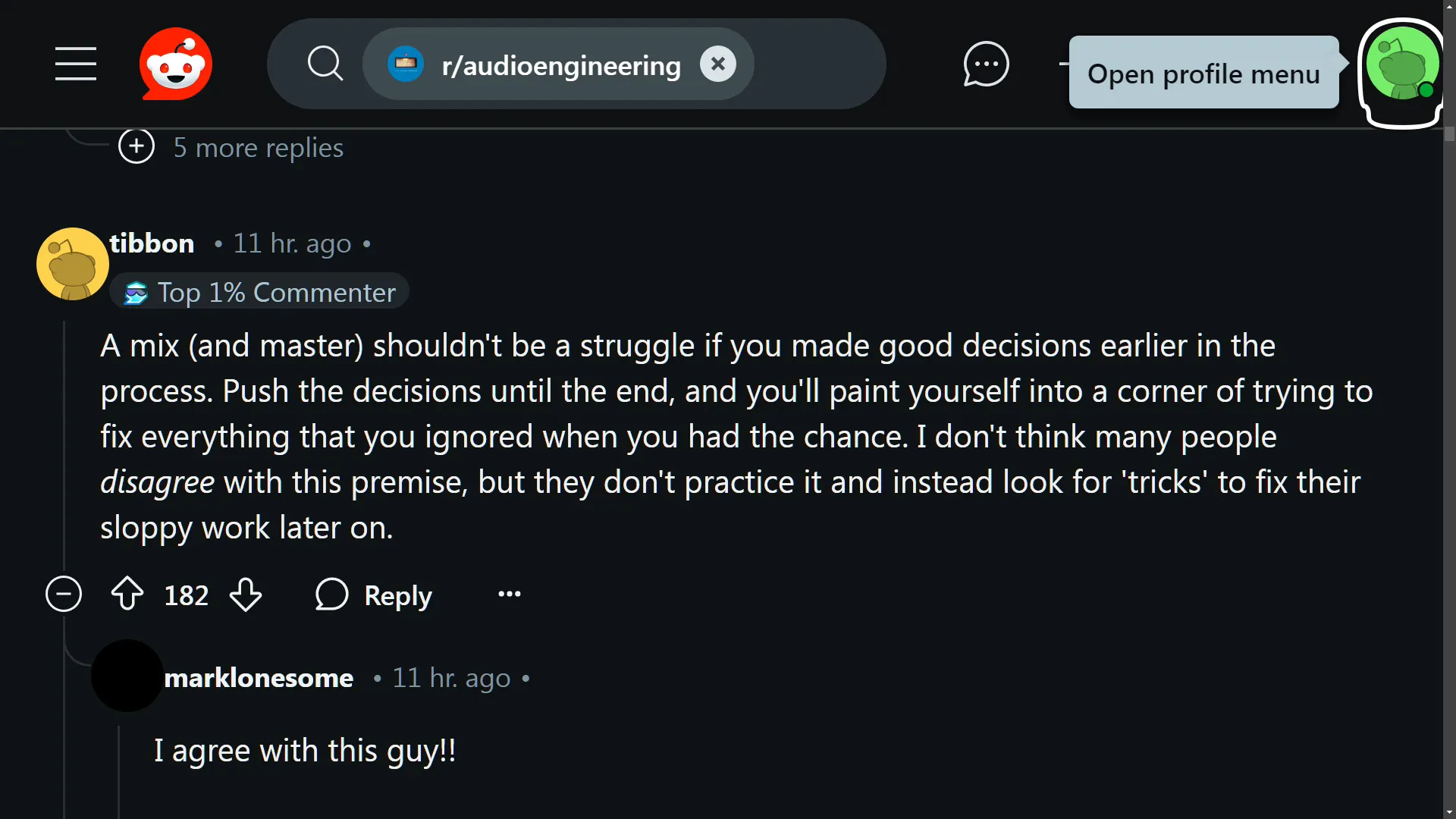
Critique of YouTubers Selling Courses
Although numerous content creators, on YouTube provide material to their audiences; there is an emerging pattern of people marketing courses related to engineering which prompts curiosity regarding the intentions driving such endeavors Some individuals may have a sincere desire to assist others in enhancing their abilities; whereas others could be solely focused on leveraging their online presence for financial gain.
It's crucial for future engineers to identify the courses that truly offer insights and knowledge worth pursuing.Look out for programs, with a history of success and positive reviews.Not all courses match up equally as some might overpromise and underdeliver.Make sure to investigate before committing to any materials.
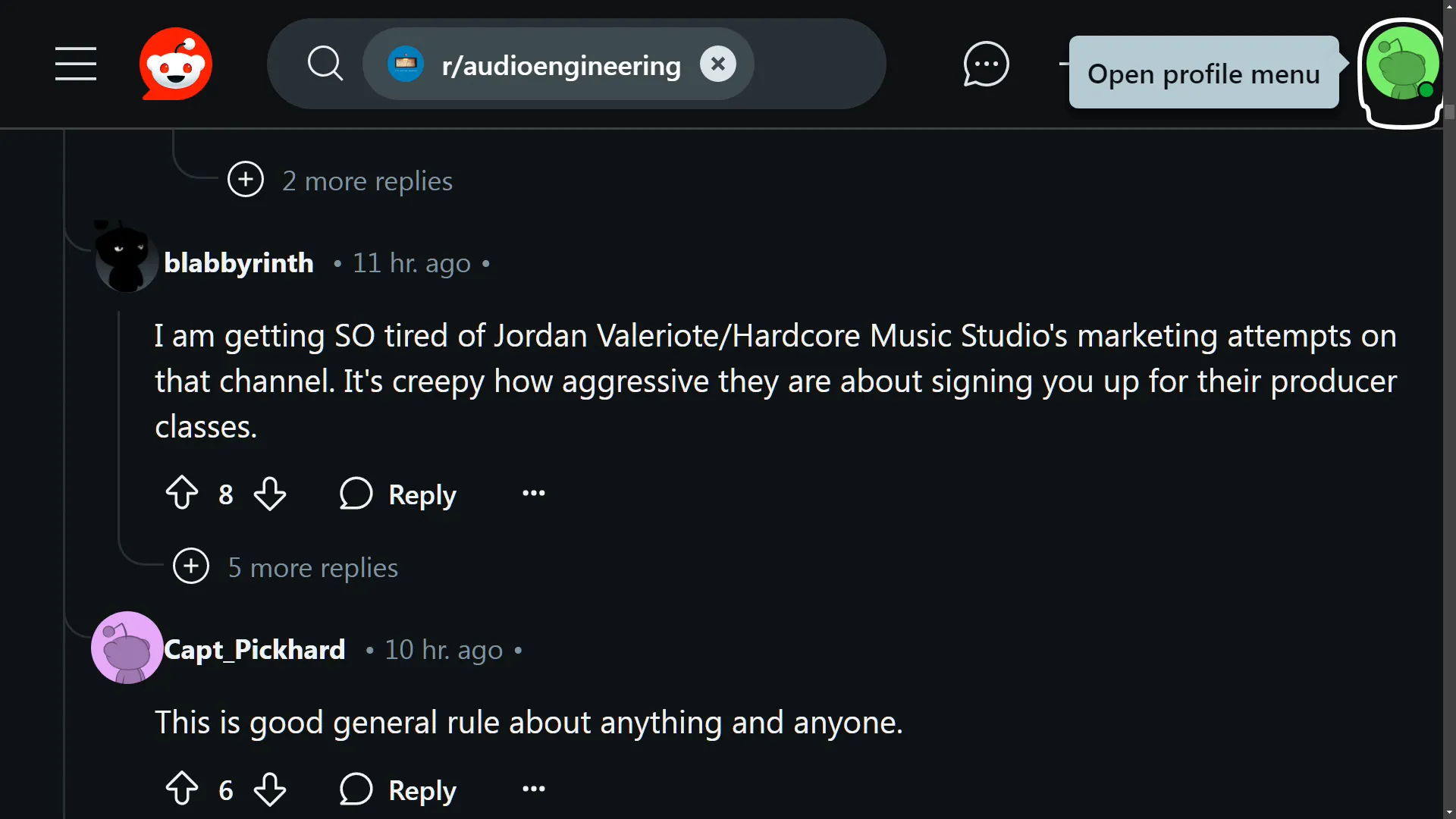
Defending YouTube Engineers
Even though some people criticize them it's important to support YouTube engineers. They have a lot of knowledge and experience often sharing insights that're not easy to come by elsewhere. Their willingness to teach others is praiseworthy. They are resources, for newcomers, in the field.
Approaching their content with a mind is crucial because even if some individuals lack the background of a professional audio technician; they could still share valuable insights and advice stemming from their personal encounters and viewpoints, within the field of interest.
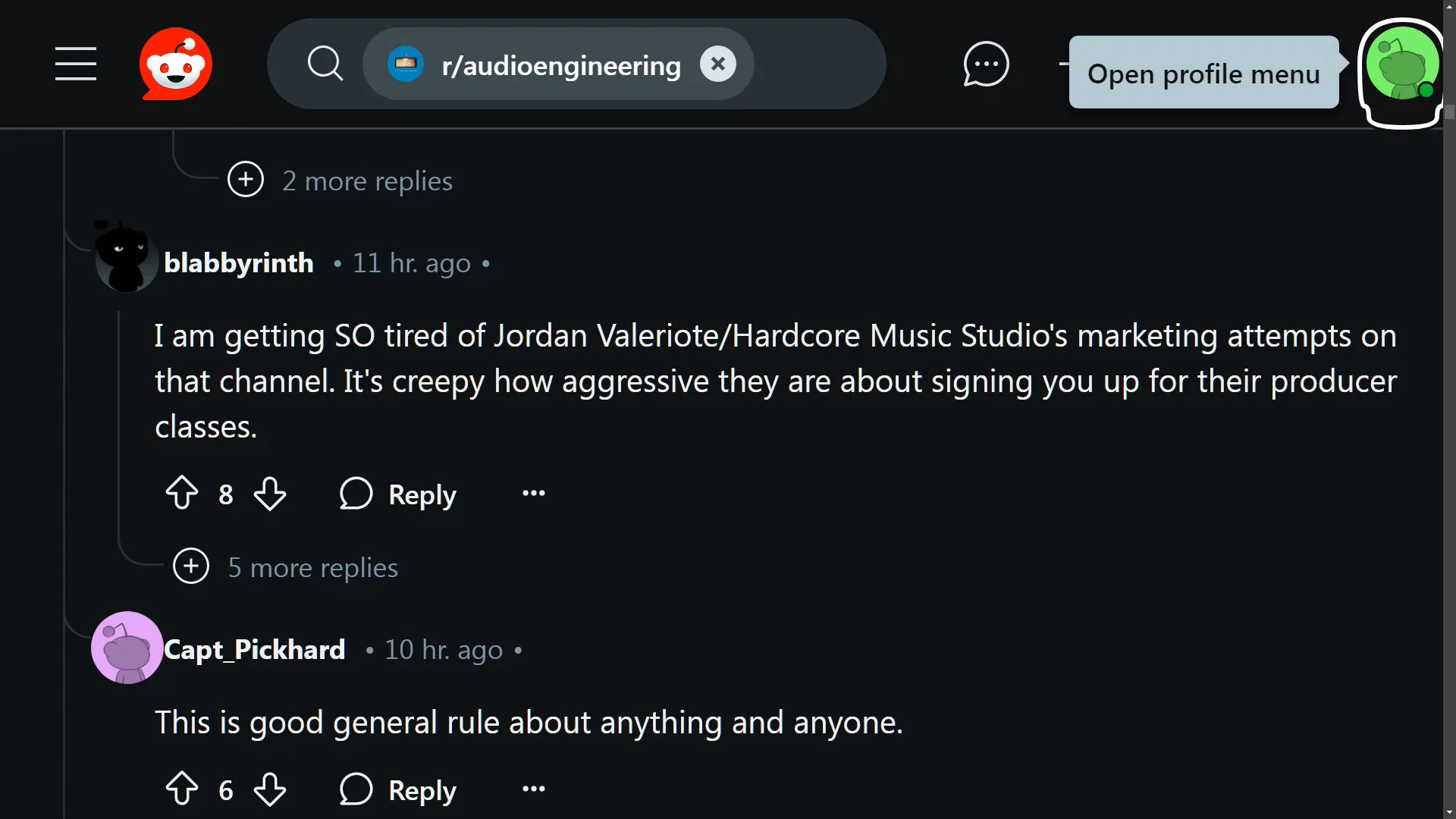
Making Good Recording Decisions
Ensuring you make informed decisions when recording is vital, for producing top notch outcomes.The process involves picking the microphone taking into account the recording setting and recognizing the constraints of your gear.Every decision made impacts the end result. Can either improve or impede your mixing phase.
Beginners often ignore these choices. End up feeling frustrated when mixing music on.Fixating on plugins to correct recordings is not the way to go; it's better to concentrate on nailing it from the start.This fundamental method can greatly enhance your mixing quality. Also help you save time in the future.
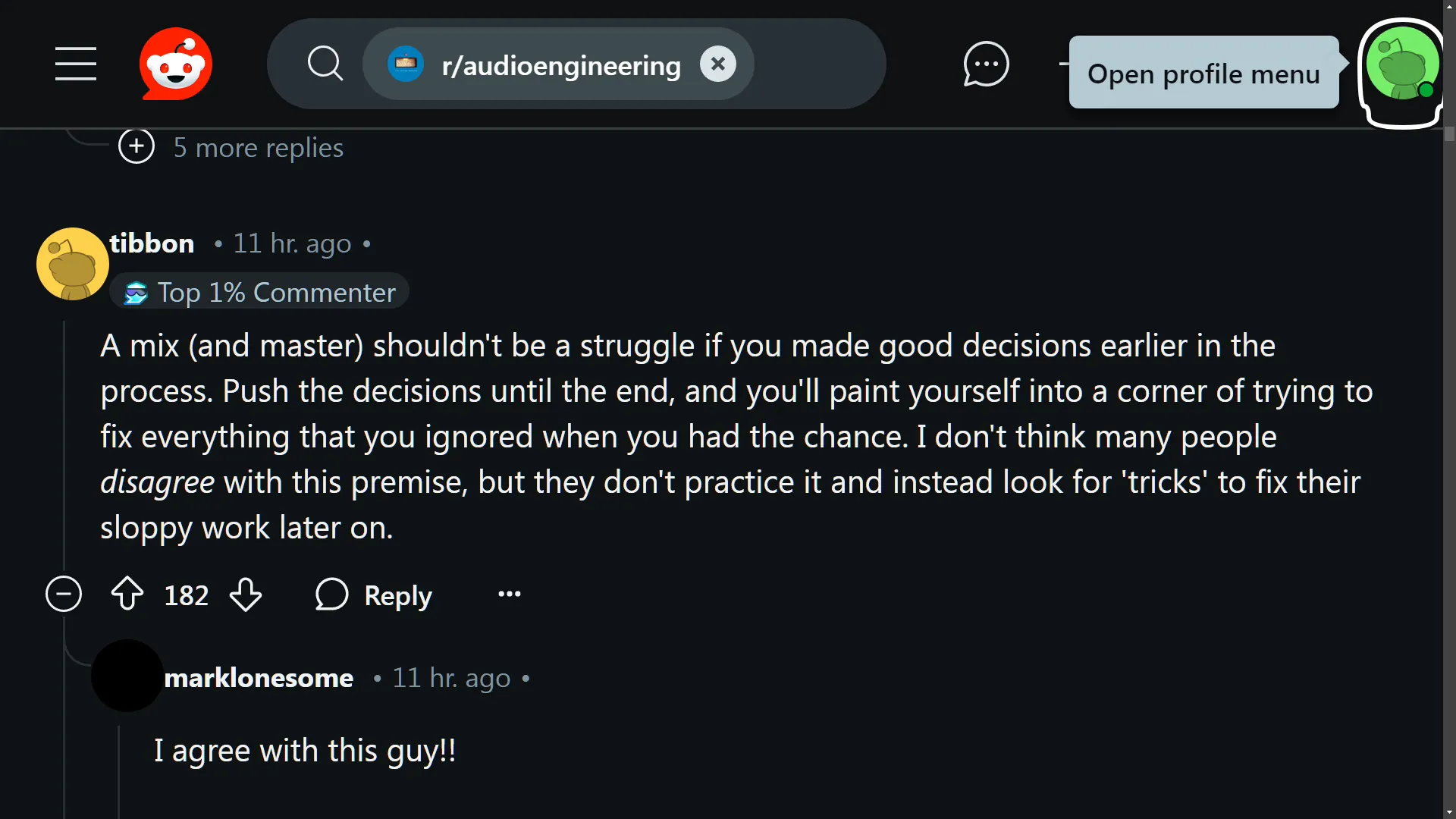
Exploring Guitar Tone
To be an audio engineer it's important to grasp the nuances of guitar tone as it can truly enhance a mixs quality with the touch, from the get go by nailing down a solid tone during recording.
Many engineers tend to add EQ to their guitar recordings; however it's often better to keep it simple sometimes for a more natural sound by focusing on adjusting only the extreme frequencies of the instrument.
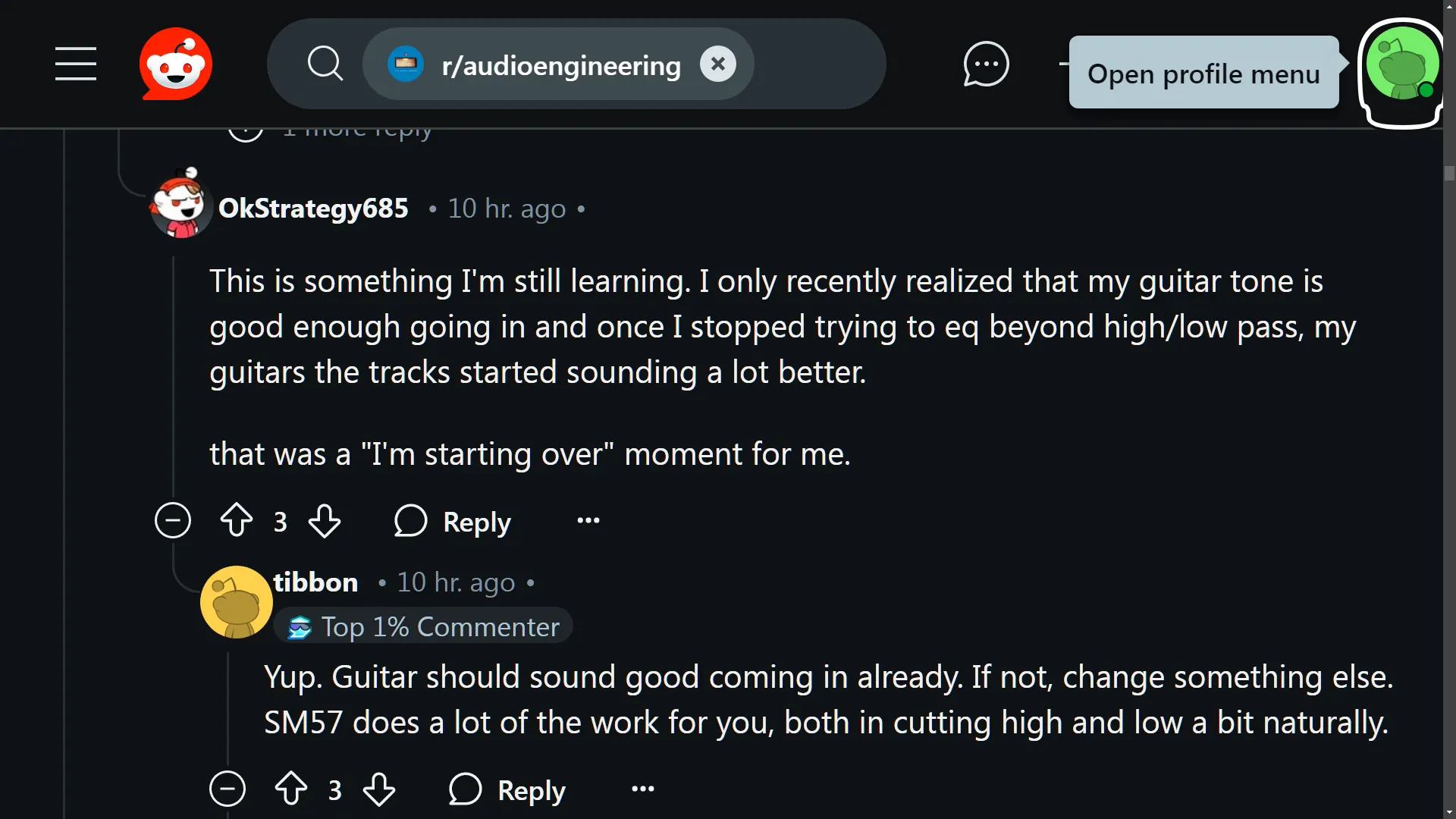
Making a Living as an Engineer
Numerous, up and coming sound technicians envision earning a livelihood through their artistry;. The actuality may diverge significantly from their aspirations as it typically demands a blend of expertise in the field along, with networking and a touch of serendipity to forge a viable path in this fiercely competitive industry.
Many individuals are drawn to audio engineering out of passion. Ensuring an income is key, to success, in the field. Experts often recommend keeping your day job until you establish a clientele and steady workflow. This approach enables liberty without the stress of uncertainty.
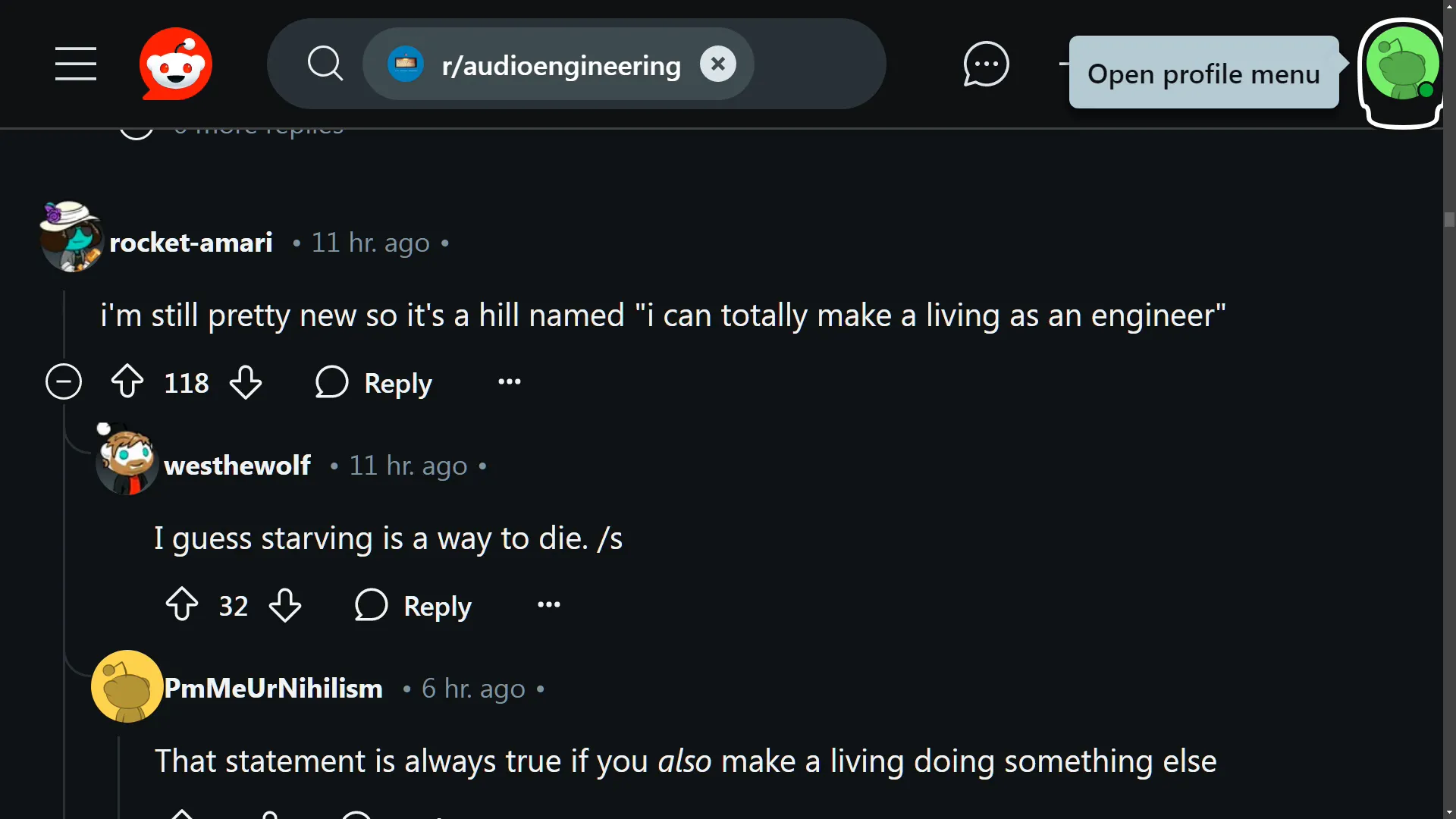
Understanding Drums Panning
Mixers often consider panning drums as an element, in shaping the quality of a track. The common practice involves positioning the hi hat to the left. The kick drum, at the center of the mixing console. Yet individual taste and preference also influence these decisions significantly.
Certain engineers like to position the hi hat towards the side when thinking about how the audience perceives it in performances. In the end it's all, about striking a balance that suits the song and the entire mix. Trying out approaches is crucial since each mix comes with its specific needs.
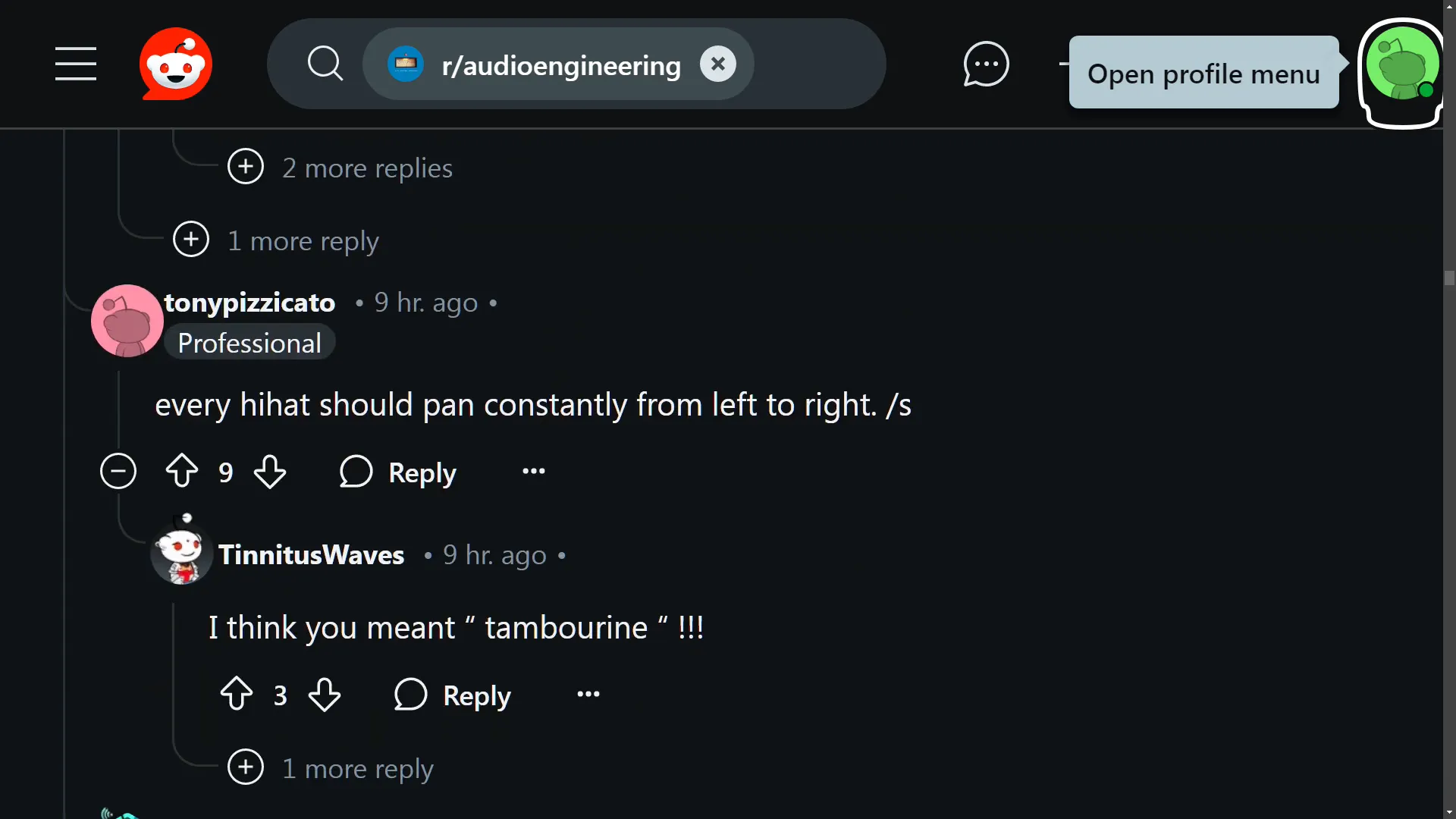
The Need for Educational Patience
Working in production is a process that demands persistence and ongoing education. Some novices anticipate becoming experts however the truth is that cultivating an ear and mastering effective techniques requires years of dedication.
Invest time, in familiarizing yourself with your monitors and the sound environment as it can greatly improve your mixing abilities.You need to practice and be open, to learning from errors to progress in this field.
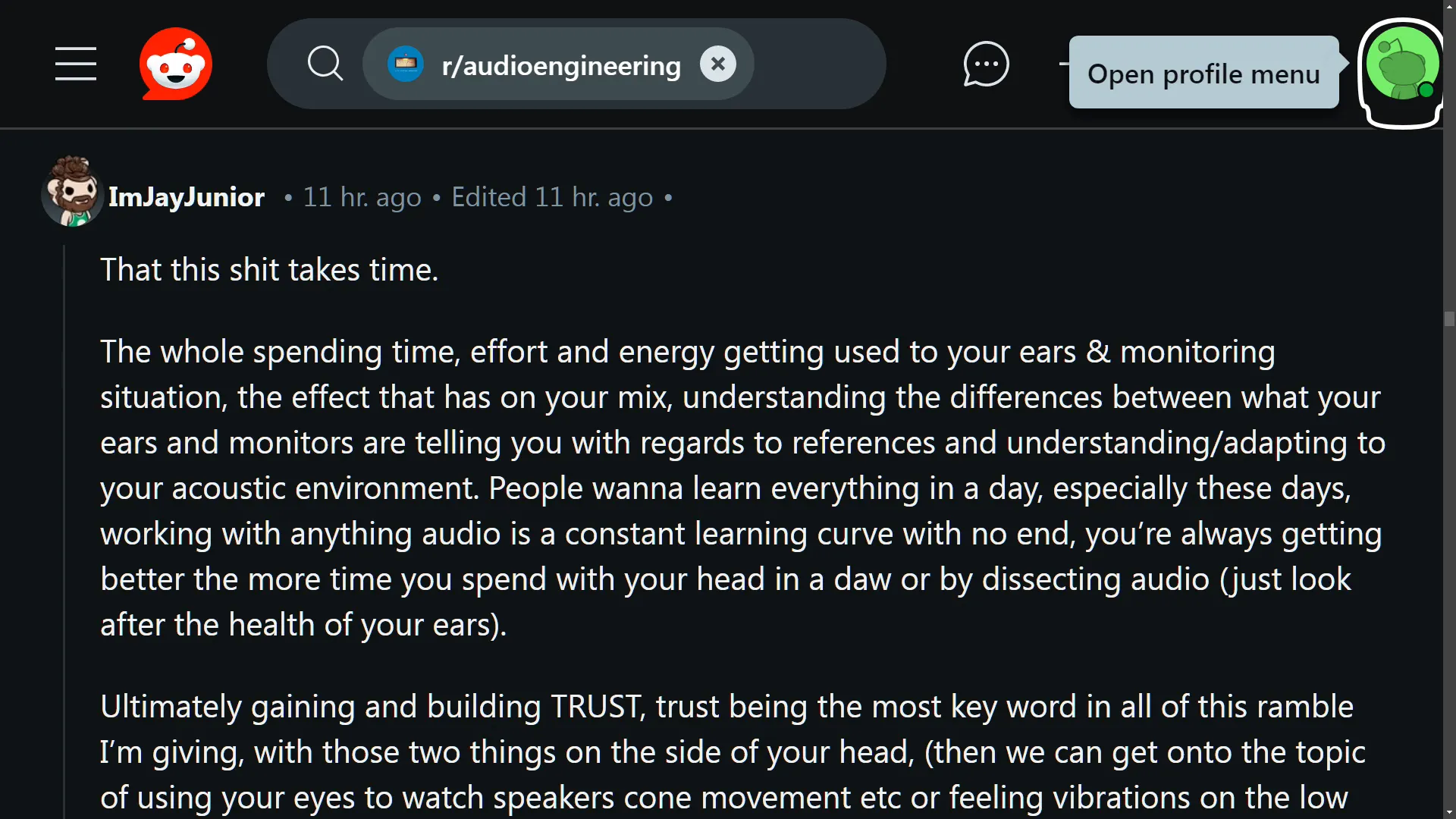
Why Cheap Equipment Isn't Always Bad
These days, in the market setting I am able to produce top notch outcomes using cost tools easily attainable on the market thanks, to technological advancements that have made superior audio equipment more within reach than before.
For example The Audient series interfaces offer performance at a price point. Although some argue that pricey equipment is essential many engineers find success, with budget alternatives while still maintaining quality.
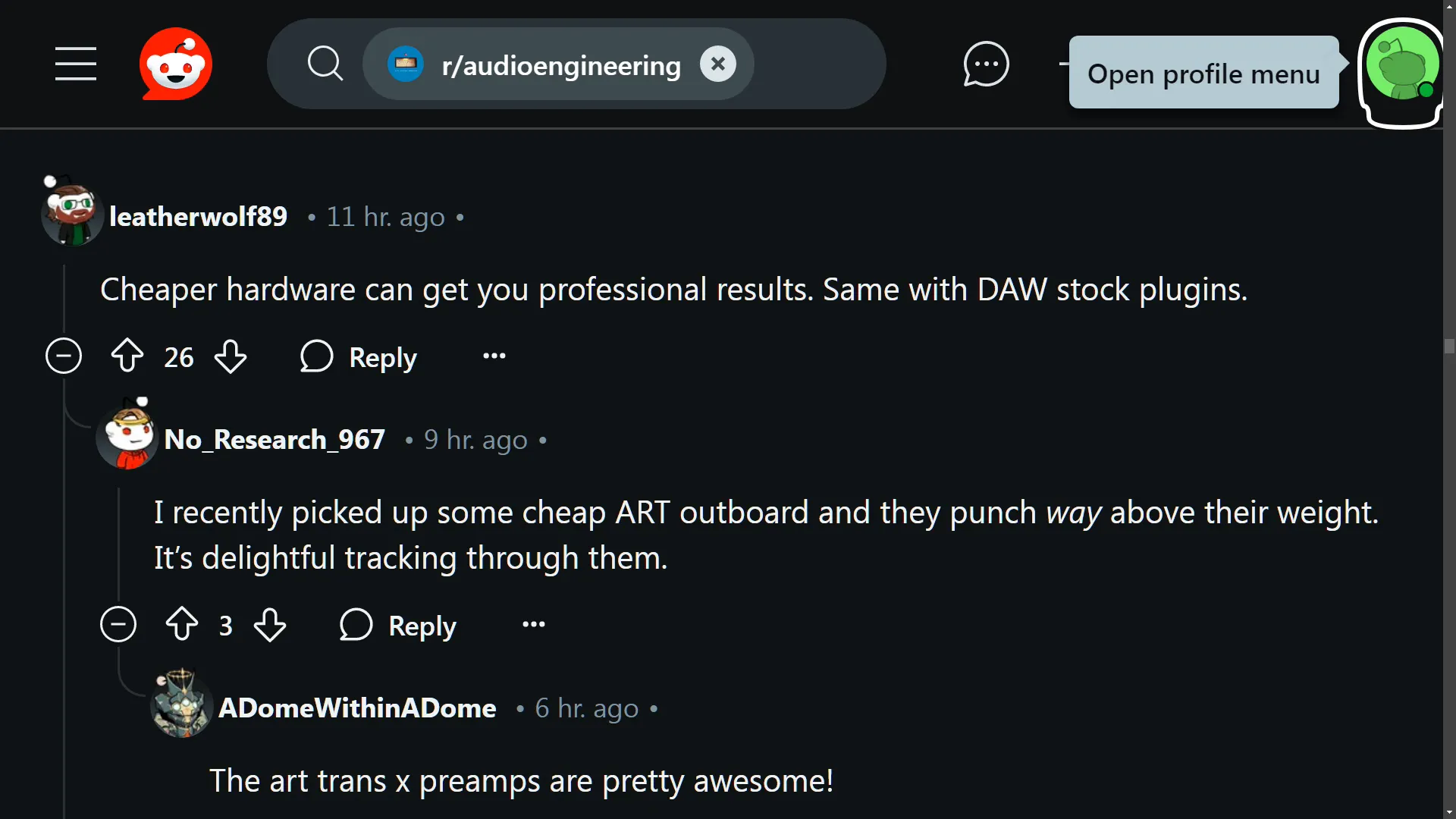
The Subjectivity vs. Objectivity Debate
Creating an mix requires a blend of personal preference and technical expertise to ensure it connects with the audience on an emotional level while also meeting quality standards in sound production.
As you become more experienced, in this field of work or craft over time and practice that skill continuously and consistently day by day or whenever you can spare some time for it you will discover the balance that exists within it. It is of importance to give yourself moments of rest and relaxation to rejuvenate your mind and body before coming to your creations or projects, with a renewed perspective. This approach will enable you to evaluate your work from an unbiased standpoint allowing you to make informed decisions when it comes to refining or adjusting the elements of your creation.
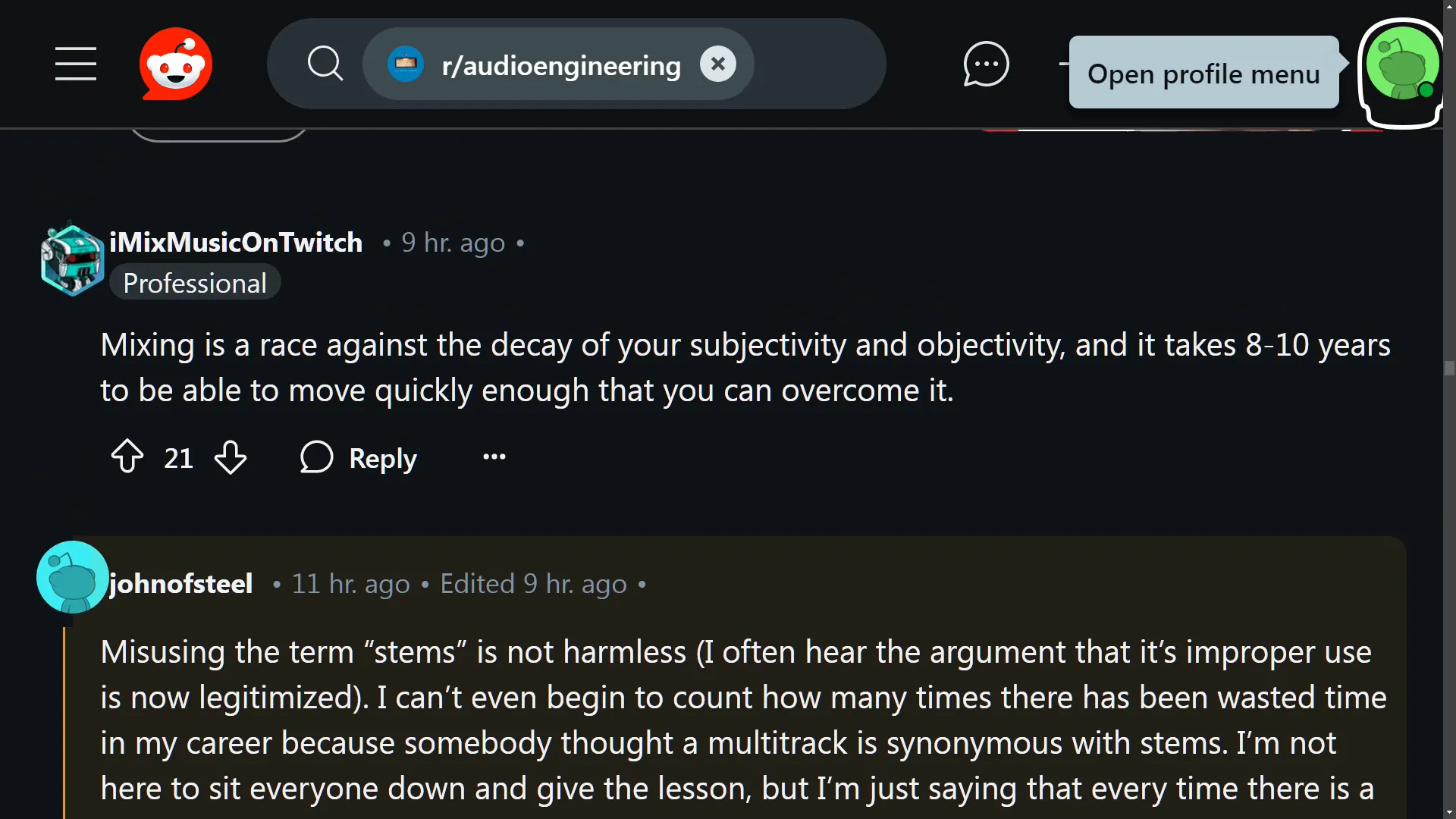
Understanding Stems vs. Mult-Tracks
In the field of production and mixing music tracks together effectively requires an understanding of the terminology used in the industry. It's important to differentiate between stems and multi tracks to avoid any confusion that could arise. Stems are essentially submixes of your files that are usually categorized by instrument or vocal type whereas multi tracks consist of tracks that have been recorded separately.
Using these terms interchangeably might lead to inefficiencies and confusion, within the team members working together collaboratively. To prevent misunderstandings and promote clarity in communication, among all parties involved is essential. This clear understanding not helps in making the workflow more efficient but also contributes to improving the quality of the final output.
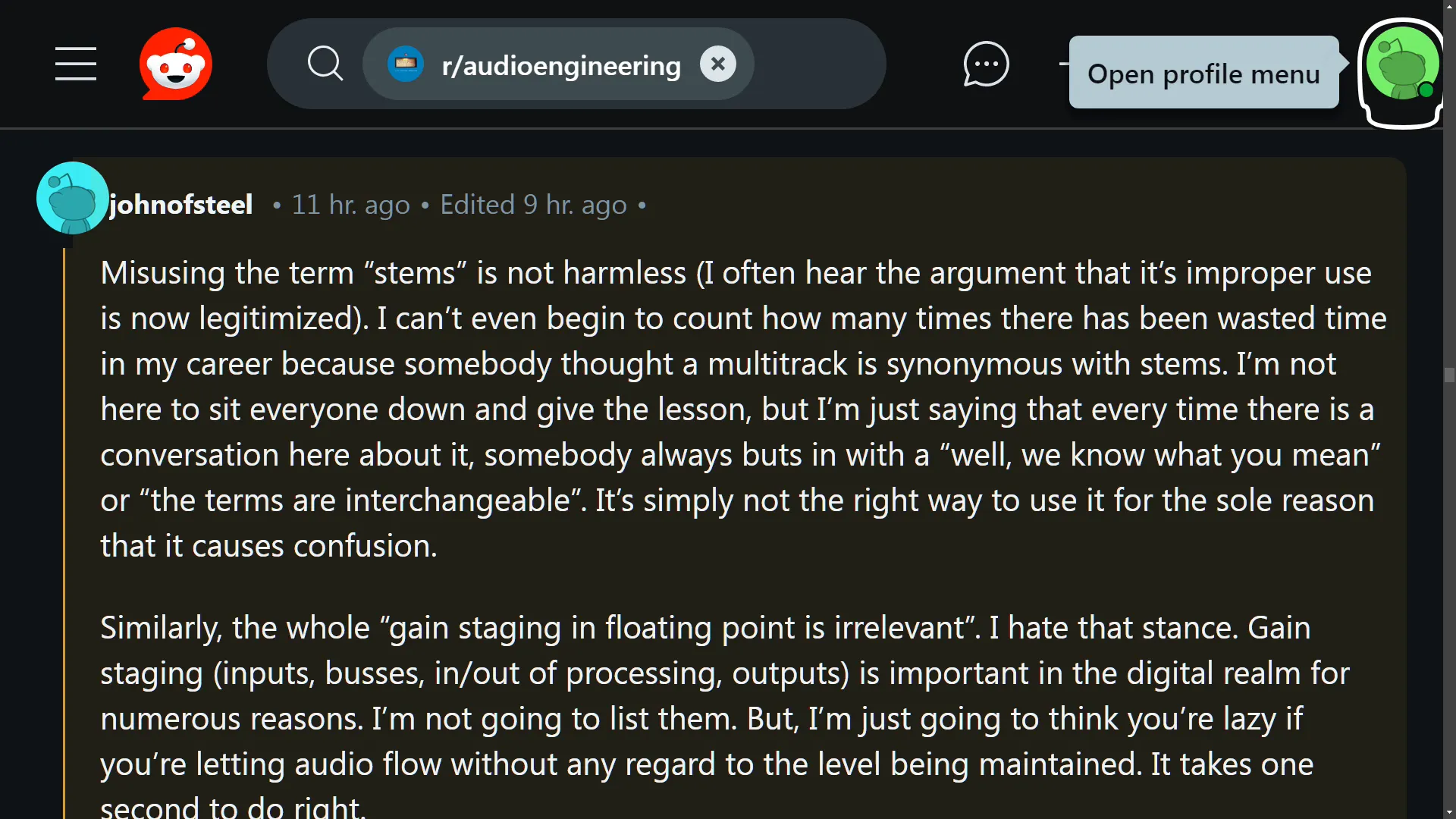
Confronting Equalization Fears
Engineers sometimes avoid using EQ settings because they worry about messing up the mix.This concern often comes from looking at how graphic EQ plugins display feedback.However before digital technology became popular engineers only relied on their hearing. It might be good to go to that approach.
Amateur DJs often struggle with getting the EQ balance due, to their hesitance to make adjustments in their mixes. It's important to utilize EQ tools and not be afraid to make changes in frequencies. Rely on your ears more than your cues. Always be open to experimenting to discover the perfect sound, for your mix.
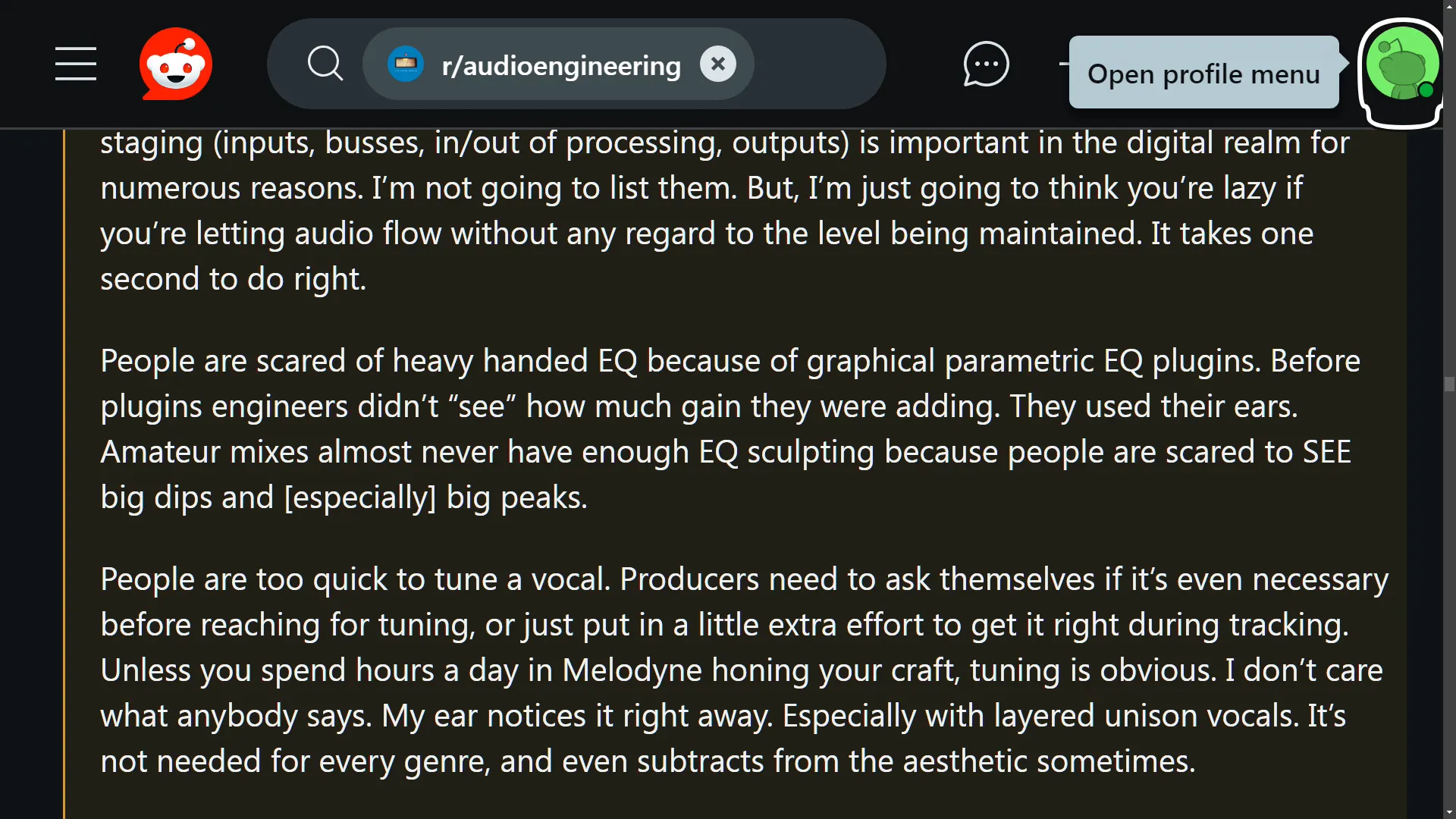
Pitch Tuning and Widening Techniques
Adjustments, to pitch is a known technique in music creation; however it's vital to use it. Prior to resort to pitch correction tools during the production process,musicians should first assess if it is absolutely required. Frequently,putting in a bit effort during the recording phase can lead to outcomes compared to excessive tuning, at a later stage.
When exploring methods to broaden the sound of your music mixtures, with stereo widening tools might amplify the experience but beware of phase problems that may arise as a result of their usage Instead opt for experimenting with innovative song structures and varying the placement of sounds to achieve a sense of spaciousness Not every musical element necessitates being spread out widely harmony, between different elements is crucial
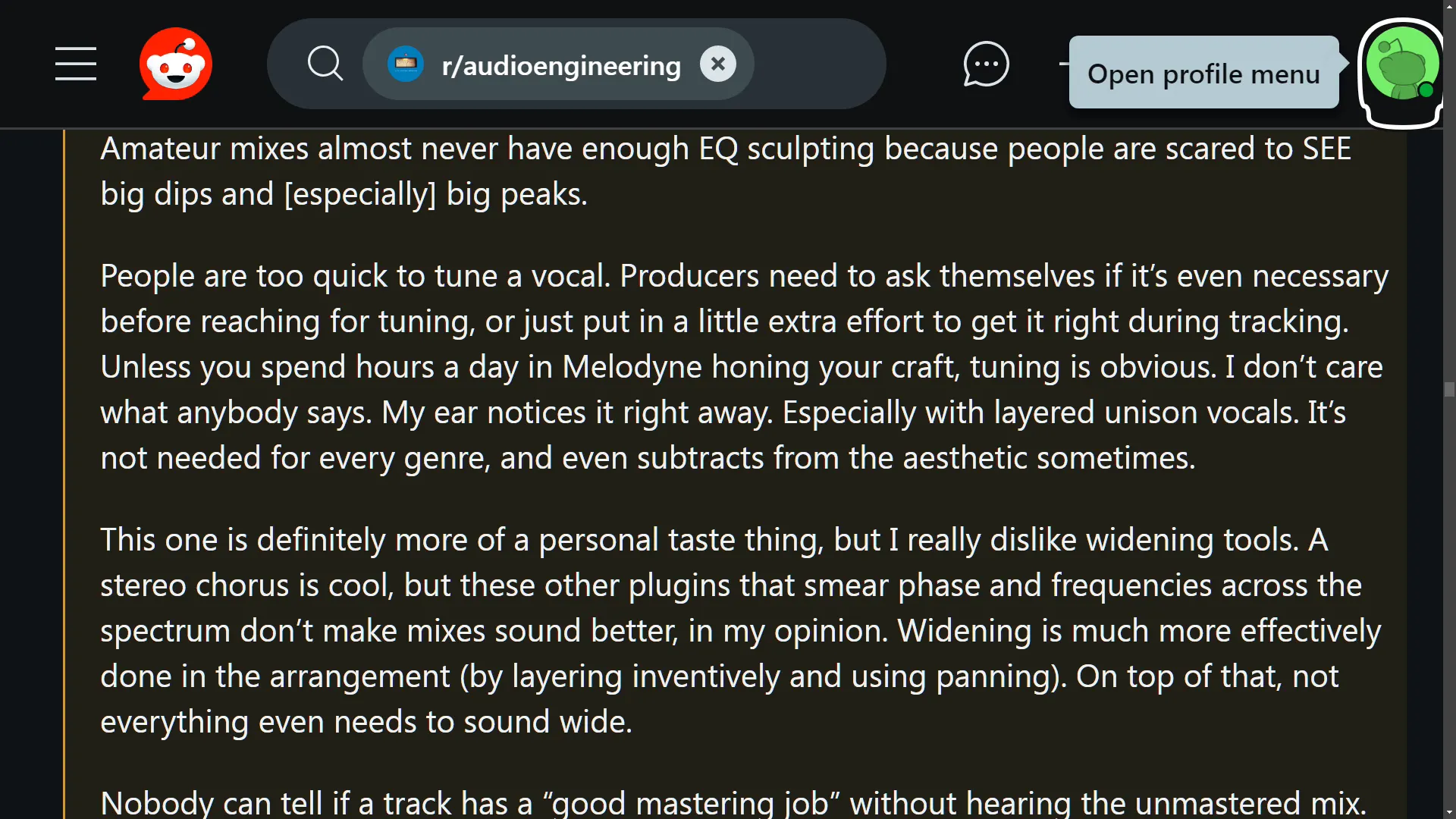
Mix Quality vs. Master Quality
Many people believe that mastering alone determines the quality of a song; however the mix actually plays a role, in shaping the sound at more than ninety five percent contribution, to its overall quality level.
It's crucial to grasp this difference—it's key, for a base that empowers the mastering engineer to elevate the track with finesse.Focus on attaining a mix since its what shapes the outcome of your end product.
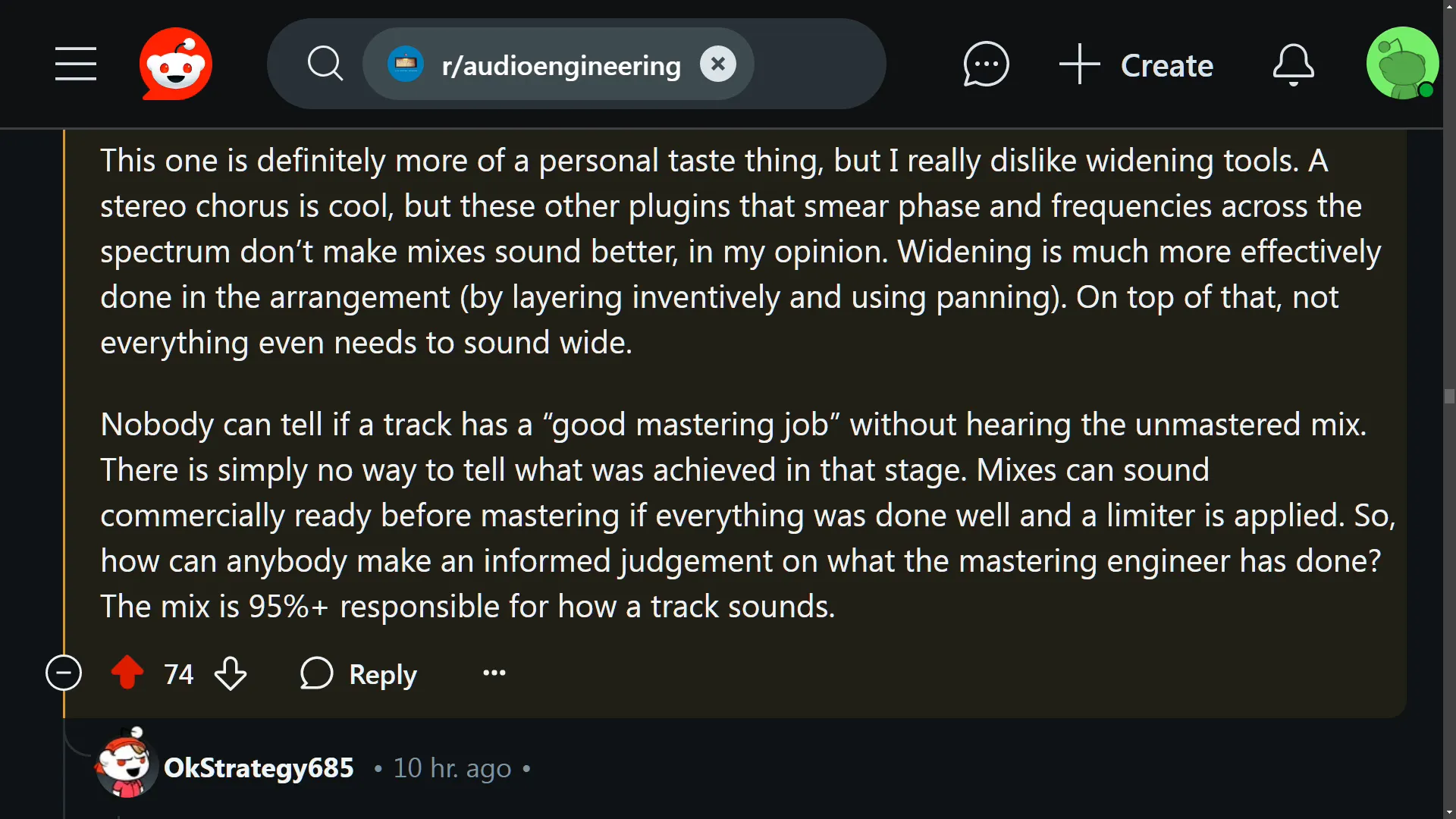
The Importance of Gain Staging
Maintaining the levels of audio is crucial, in engineering but its a detail that can sometimes be missed out at times by professionals in the field! It's all about making sure that the audio levels are consistent through the mixing steps to avoid any distortion or reduction, in quality.
It's practice to keep an eye on your levels while you're adding plugins and effects to your tracks for mixing decisions and clarity in your music production process Remember that having properly adjusted gain can really enhance the quality and dynamics of your mix overall.
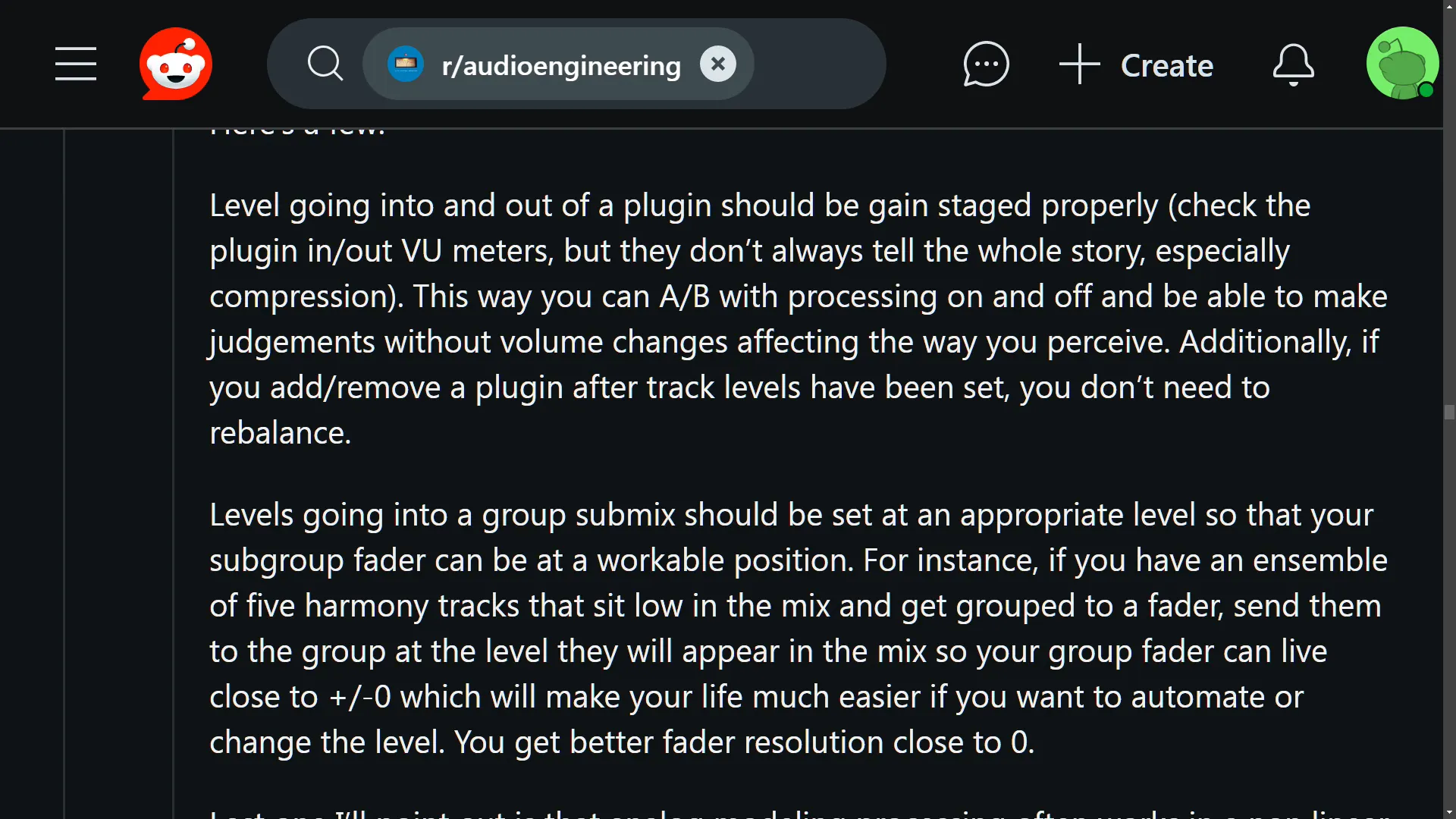
Frequently Asked Questions
- What is the best way to start with audio engineering?
Start by trying out the tools at your disposal and concentrate on capturing sound and mastering the fundamentals of blending.
- How important is it to have expensive equipment?
Top tier tools can definitely be handy. They're not essential, for success – expertise and method usually trump gear.
- What should I focus on while mixing?
Make sure to focus on getting a blend of sounds by adjusting the levels and placement within the field while also fine tuning the equalization for a smooth overall auditory experience.
- How can I improve my mixing skills?
Regularly practicing and reflecting upon errors are aspects of improvement, in any field or endeavor and seeking feedback from peers is valuable, for gaining insights and viewpoints.
